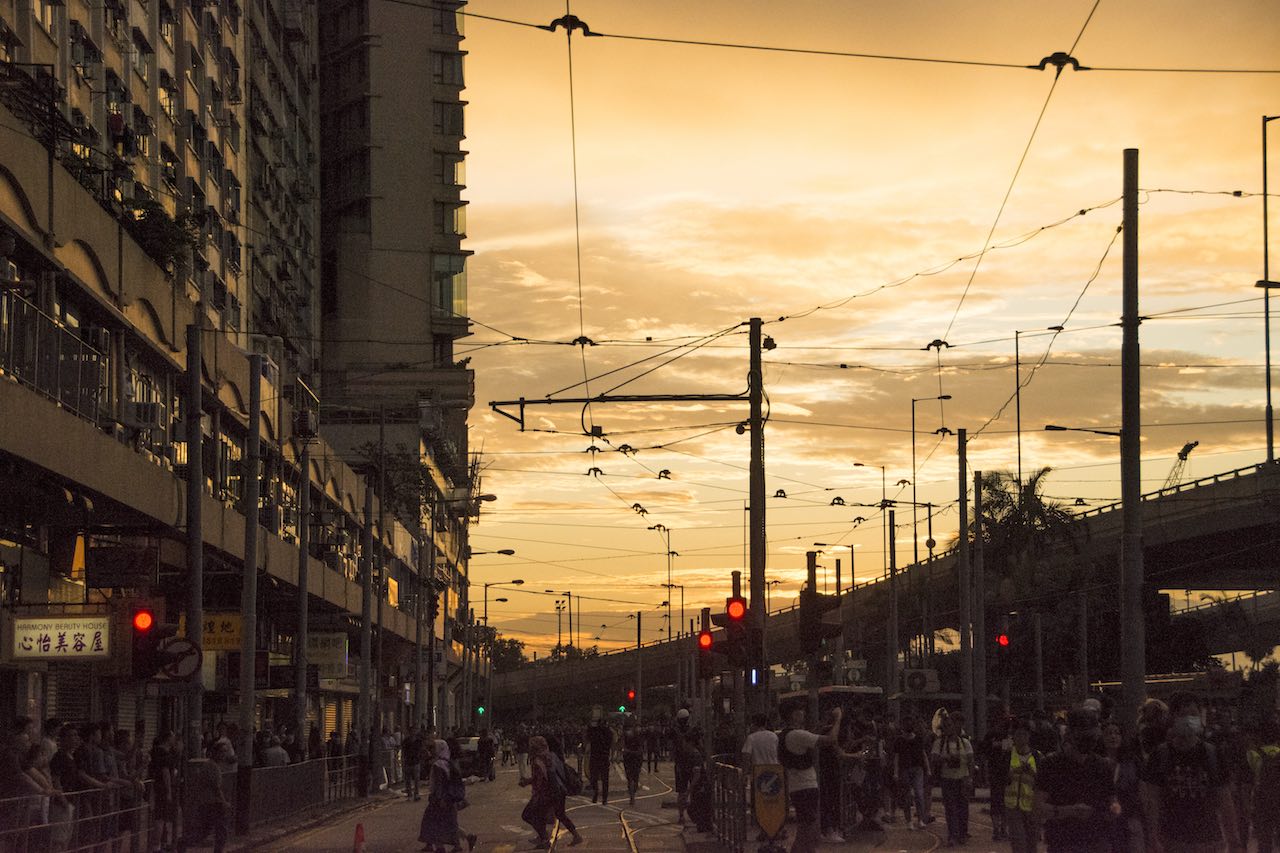Original: 【沒有光復】, published on The Owl 夜貓媒體
Translator: P
If you would like to be involved in our translation work, please get in touch here.
Translator’s note: 光復香港,時代革命 [Liberate Hong Kong, Revolution of Our Times] is a protest slogan, first used by localist activist Edward Leung Tin-Kei, the previous spokesperson of Hong Kong Indigenous. Leung participated in the 2016 Fishball Revolution, where protesters sought to defend unlicensed street hawkers from inspectors of the Food and Environmental Hygiene Department. Resulting confrontations with police led Leung and others to be arrested and charged with “rioting.” Leung later made a bid in the 2016 New Territories East by-election and intended to run again in the 2016 Legislative Council election, but was disqualified for supporting Hong Kong independence. In 2018, Leung was sentenced to six years in jail after being convicted of rioting and assaulting a police officer during the 2016 protests.
While the slogan 光復香港,時代革命 has historically been associated with militant localist protest, it has been adopted widely since the start of the anti-extradition movement. The slogan speaks to Hong Kongers’ demand for comprehensive political change and the emergence of unity and solidarity between the “peaceful, rational, non-violent” protesters and the “frontline” protesters. 光復 is a verb that contains multiple meanings; for this reason it often appears translated in English as “Liberate,” “Free,” “Reclaim,” or “Restore.” In this piece, we translate 光復 as “restore,” as this is the meaning being addressed most directly.
I am willing to bear the tear gas, pepper spray, and baton beatings with you all—but I cannot utter the words “Restore Hong Kong.”
What do we want to “restore”? Many of Hong Kong’s current problems were formed during the British colonial era. The disparity between rich and poor. The monopoly on land ownership. The Public Order Ordinance, under which the offence of “rioting” carries a 5-7 year jail sentence. The lack of universal suffrage. Even those inciters of terror, those triad gangsters who collude with dirty cops, have existed for many years—they did not simply come out of the woodwork after 1997.
The Hong Kong colonial government’s operations were not as blatant. But starting from the 1970s onwards, it started enacting a form of “virtuous governance,” not only to respond to the 1967 riots but to anticipate the handover in 1997. The objective was to leave behind problems for the Chinese Communist Party. (This is not a conjecture but a proven historical reality, referenced in archival documents.) Over time, economic development has masked society’s problems. That the Asian financial crisis only struck in 1997 was the British colonial government’s fortune.
No matter how dark Hong Kong’s reality gets, there is no need for us to romanticize our colonial past.
Am I defending the establishment? Of course not. There is nothing more shameful than a government that presented itself as the liberator of Hong Kong after the handover, and yet maintained colonial-era structural injustices. If, from the very beginning, the Hong Kong government had prioritized resolving the problems left behind by the legacy of colonialism, then additional “foreign interference” would not amount to anything. But Hong Kong’s current predicament is the karmic effect of the Chinese Communist Party’s and Hong Kong’s establishment’s failures.
No matter how dark Hong Kong’s reality gets, there is no need for us to romanticize our colonial past. Do we really have to fight to the death, to sacrifice our freedom and potentially our lives, just to “restore” a political apparatus founded on “the art of governance,” which ignored and manipulated the popular will and planted the roots of Hong Kong’s current authoritarian system? In everyone’s heart, “restoration” is a symbolic demand; it is not an actual request for Britain to resume control. But even as a symbolic demand, the word does not match the meaning of our struggle. Because what we seek is not a return to past forms of rule by might.
The Hong Kong we want is one in which there is universal suffrage and genuine democracy, where structural problems of livelihood are ameliorated, where there is no longer tolerance of the collusion of the landed elite and the corrupt indigenous populations, and where the police are accountable to the people. Looking back at the last hundred years, this Hong Kong has never existed. What we actually want is an entirely new Hong Kong.
Hong Kong has never belonged to Hongkongers; what we must do is to build a Hong Kong that belongs to the people. This ideal does not have to fall back on a fantastical vision of the past. And that is something to be proud of.
This is not “restoration”; but a whole new era.




